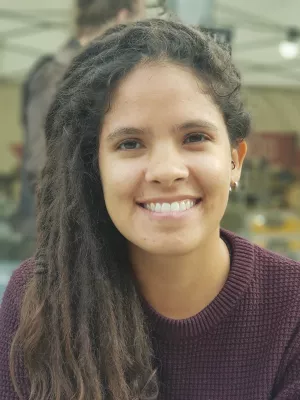
Mayra Rulli
Doctoral student

Unified understanding of intrinsic and extrinsic controls of dissolved organic carbon reactivity in aquatic ecosystems
Author
Summary, in English
Despite our growing understanding of the global carbon cycle, scientific consensus on the drivers and mechanisms that control dissolved organic carbon (DOC) turnover in aquatic systems is lacking, hampered by the mismatch between research that approaches DOC reactivity from either intrinsic (inherent chemical properties) or extrinsic (environmental context) perspectives. Here we propose a conceptual view of DOC reactivity in which the combination of intrinsic and extrinsic factors controls turnover rates and determines which reactions will occur. We review three major types of reactions (biological, photochemical, and flocculation) from an intrinsic chemical perspective and further define the environmental features that modulate the expression of chemically inherent reactivity potential. Finally, we propose hypotheses of how extrinsic and intrinsic factors together shape patterns in DOC turnover across the land-to-ocean continuum, underscoring that there is no intrinsic DOC reactivity without environmental context. By acknowledging the intrinsic–extrinsic control duality, our framework intends to foster improved modeling of DOC reactivity and its impact on ecosystem services.
Department/s
- BECC: Biodiversity and Ecosystem services in a Changing Climate
- Dept of Physical Geography and Ecosystem Science
Publishing year
2022-09
Language
English
Publication/Series
Ecology
Volume
103
Issue
9
Document type
Journal article
Publisher
Ecological Society of America
Topic
- Ecology
Keywords
- bioreactivity
- dissolved organic carbon
- photoreactivity
- sorption
Status
Published
ISBN/ISSN/Other
- ISSN: 0012-9658

